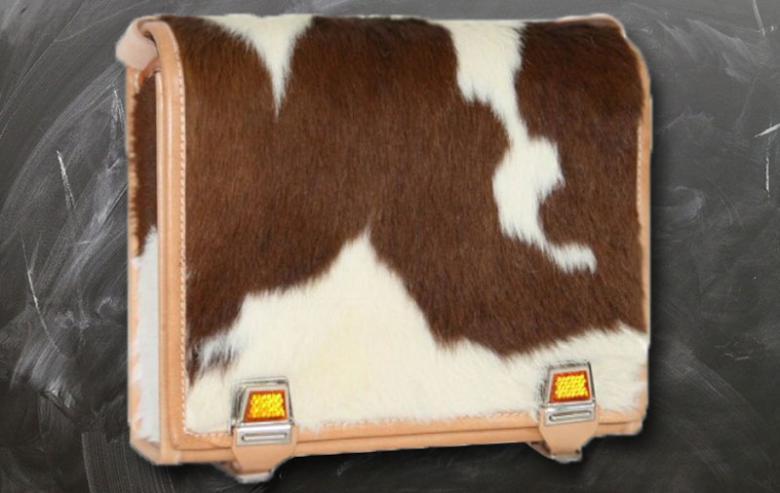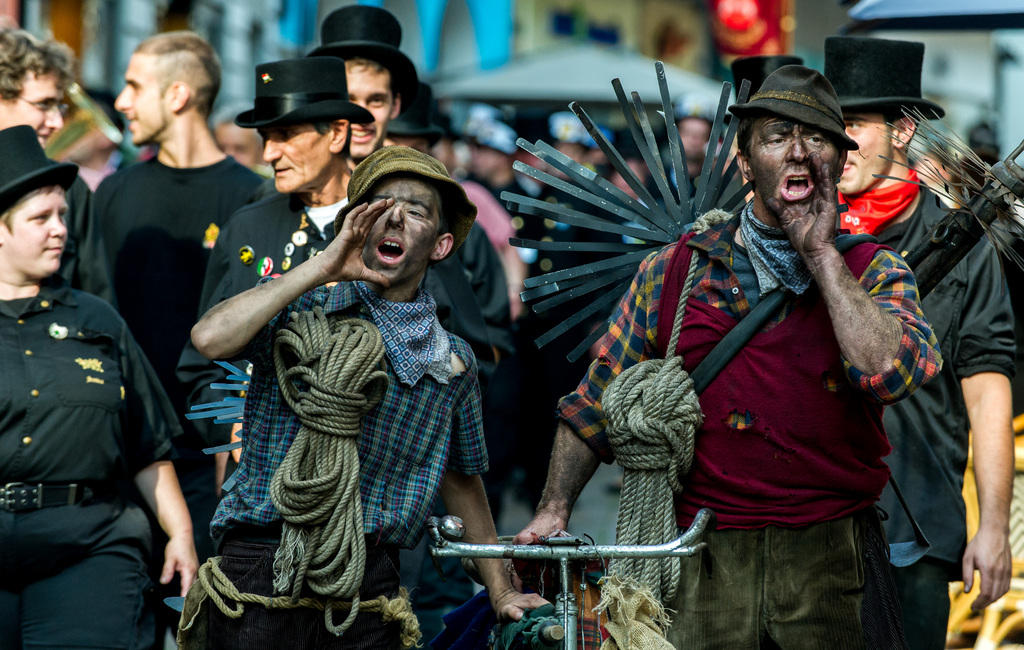Whatever happened to: Saturday morning school?

We asked you to get nostalgic and send in memories of anyone or anything that reminded you of Switzerland – and you didn’t let us down. Here are some of the best posts, with responses.
This is a follow-up to an article, published on Swiss National Day, which included the stars of the most successful Swiss film ever, a sticky Fribourg tart and Swatch’s Twin Phone (warning: contains very big 1980s hair).
So, whatever happened to…?
Until around 20 years ago, Swiss pupils had to go to school every day of the week apart from Sunday. Legally, they got two afternoons off (on Wednesdays and Saturdays), but at the end of the 1970s some people started pushing for a five-day week, i.e. moving the Saturday morning shift to Wednesday afternoon.
Arguments in favour included longer weekends for everyone (pupils and teachers); arguments against included timetable headaches for schools, which also worried about losing optional subjects and free-time activities. Some parents also quite liked having a quiet Saturday morning…

But because education in Switzerland is a cantonal issue, it took decades for the five-day week to be introduced – especially as in some municipalities referendums were required.
For example, some municipalities in canton UriExternal link had already done away with Saturday classes in 1972, while Lucerne did so in elementary schools in 1995 and the authorities in BaselExternal link waited until 2002. In canton Thurgau, almost 80% of voters rejected the idea of school-free Saturdays in 1988; ten years later, as more and more neighbouring cantons were taking the plunge, five-day weeks were introduced in elementary schools, with secondary schools following suit not long afterwards.
The Swiss Conference of Cantonal Directors of Education told swissinfo.ch on August 8 that they had no overall view of whether and since when Saturdays have been school-free across the country. Its advice was to contact the 26 cantonsExternal link individually.
I don’t know anyone who still goes to school on Saturday mornings in Switzerland, but I can’t say for sure that no one does. Do you? Let us know!
Maya Wirz came to attention in 2011 when she won Die grössten Schweizer TalenteExternal link – the equivalent of Britain/America’s Got Talent in the German-speaking part of Switzerland. The media described Wirz as a “singing bus driver”, which was true, but it possibly played down the fact that she was a classically trained opera singer.
Here she is singing Time to Say Goodbye to win the competition:
Since then, Wirz, who spoke to swissinfo.ch after her win, has continued to perform and has released three CDsExternal link of well-known arias and easy-listening pop tunes. She still drives a bus.
Whatever happened to chimney-sweeps on bicycles? Well, in theory you could still see one, as Switzerland’s chimneys still need cleaning. If you have a grubby flue or smoke extraction unit, the Swiss Chimney-sweep AssociationExternal link will gladly send along a trained engineer.
But if you mean a sooty character – often a child – with black hat and big brush, then, fortunately, they haven’t existed for about 100 years.

Unfortunately, Switzerland has a shocking record when it comes to government-enforced child labour. In addition, until about a century ago many boys from the southern Italian-speaking canton of Ticino were sent by their parents to Italy and exploited as chimney-sweeps in appalling conditions. In this swissinfo.ch article, a former chimney-sweep describes how “no one can imagine what it’s like to be trapped in a completely dark hole, having to work your way up with your elbows and knees”.
GlobiExternal link has not ceased to be. He is not bereft of life. He has not kicked the bucket etc. The dapper parrot is now a spry 86 and is still travelling the world, trying his hand at various jobs – and in the process selling a mind-boggling range of merchandise (from hot-water bottles to computer games).
Switzerland’s most successful cartoon character was created in 1932 to help advertise department store Globus. Since then, he’s had roughly one adventure a year – the 88th and most recent, published earlier this year, was “Globi and the Animals in the Zoo”.

The text is always in simple verse and the books usually have a didactic element. A spin-off collectionExternal link of “Knowledge” books took this even further, focusing on issues such as chemistry or democracy (due out on September 8).
In the 1950s, Globi tried to break into foreign markets but with limited success. Then in the 1960s and 1970s he was accused – like Tintin – of racism and sexism, resulting in the offending editions being revised. In 2009, the first of ten Globi books in EnglishExternal link was published.
Other recent developments include the addition of Globi’s tomboyish friend GlobineExternal link, who first appeared in a book in 2015, and GlöbeliExternal link (little Globi), who is aimed at even younger readers.
Les Deurres is a small train station just outside Neuchâtel in western Switzerland.
While there never seems to have been talk of demolishing the station, it is true that, according to a local newspaper reportExternal link in January 2015, the planned train timetable for 2016 would have reduced the number of trains passing through Neuchâtel, with consequences for three local stations, one of which was Les Deurres. Trains, the report said, would no longer stop at Les Deurres when passing through; instead, a “rail shuttle” would be put on, heading either west to Corcelles-Peseux (three minutes) or east to Neuchâtel (five minutes, many train connections).
The cantonal chancellery told swissinfo.ch on July 30: “There are no plans to demolish the station at Les Deurres, which plays an integral part of canton Neuchâtel’s mobility project 2030External link, accepted by 84% of voters in Neuchâtel on February 28, 2016. Since the introduction of the 2016 timetable, its service has been doubled: trains now stop there every 30 minutes, in the direction of Neuchâtel and Corcelles-Peseux.”
No idea. Can anyone help?
The term nostalgia, which comes from the Greek for “homecoming” and pain”, was coined in 1688 by Basel medical student Johannes Hofer to describe the anxieties displayed by Swiss mercenaries who wished they were homeward bound. Homesickness is also known as the “Swiss illness”.
Nowadays, nostalgia is usually less pathological and more rose-tinted – fond memories from one’s youth, for example, or a wistful, sentimental yearning for a time that one didn’t necessarily experience directly. Advertisers (and certain politicians) are well aware of the power of nostalgia: in Switzerland, William Tell and Heidi – and the idyllic Alpine lifestyle in general – are used to sell everything from chocolate and cheese to beer and jeans.

More
Those were the Swiss days! Whatever happened to…?

In compliance with the JTI standards
More: SWI swissinfo.ch certified by the Journalism Trust Initiative








You can find an overview of ongoing debates with our journalists here . Please join us!
If you want to start a conversation about a topic raised in this article or want to report factual errors, email us at english@swissinfo.ch.